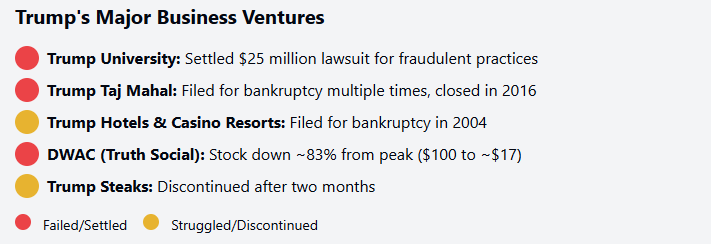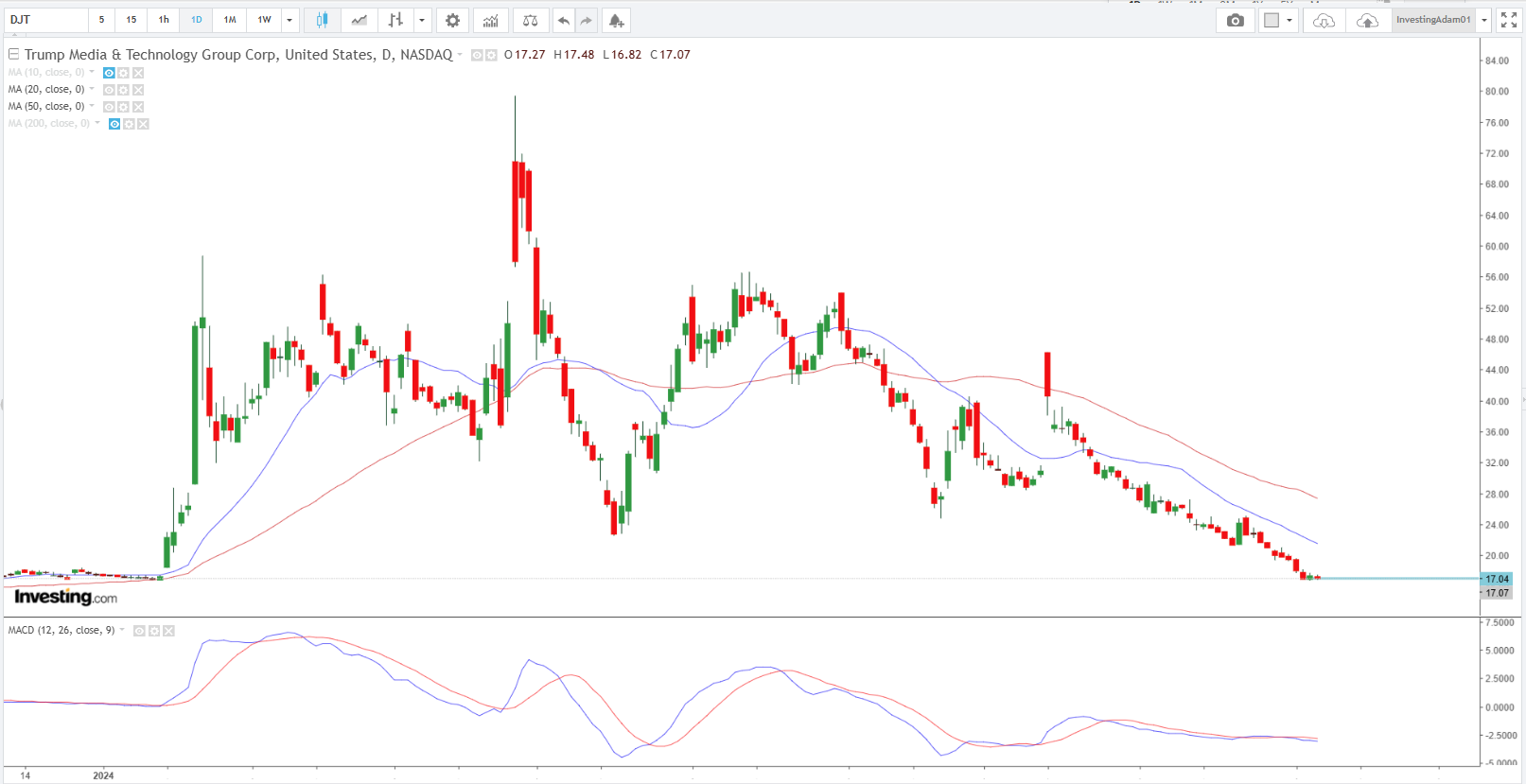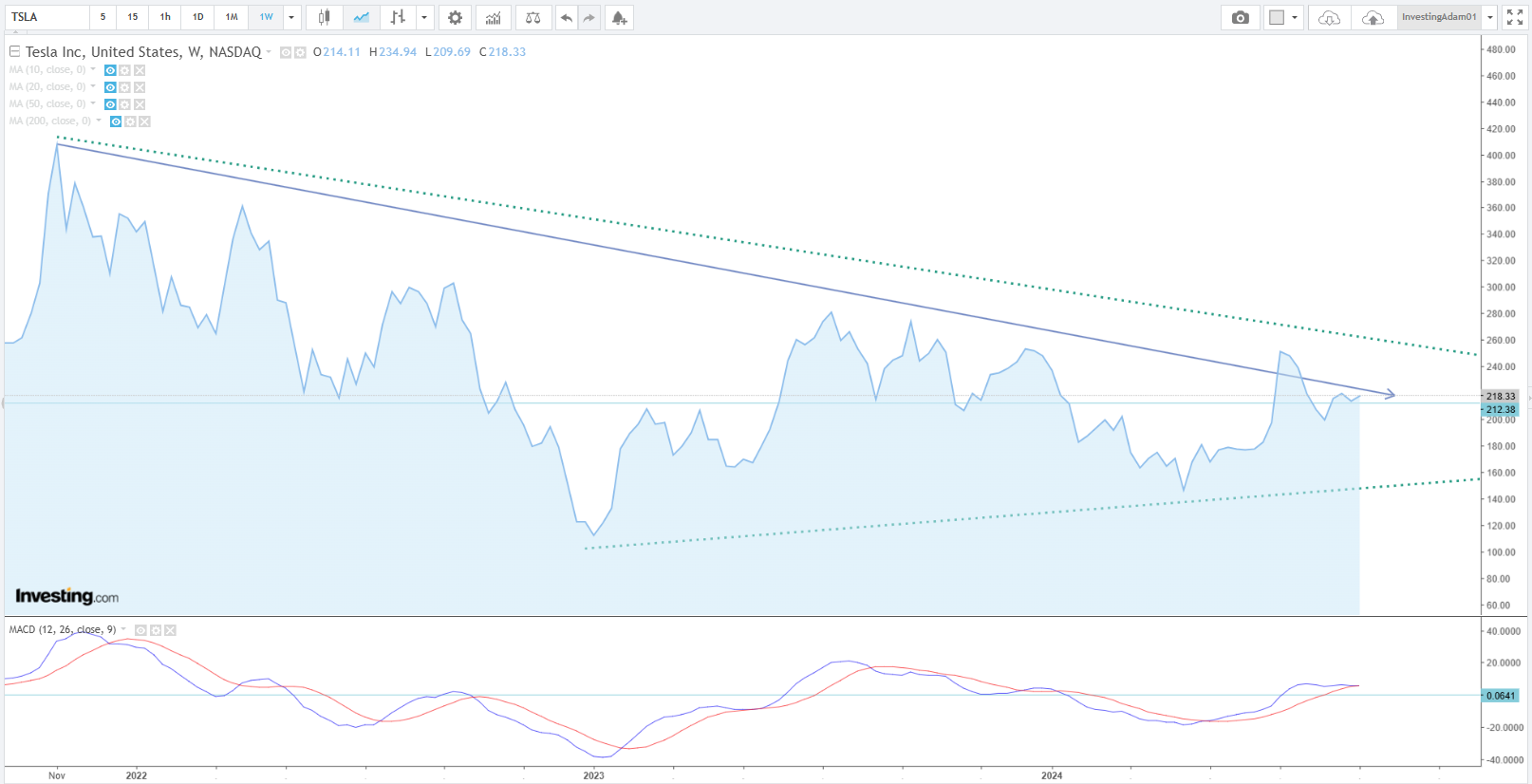Trump's Musk-Led 'Efficiency Commission' Plan: A Critical Analysis of Potential Risks
In a recent campaign rally in Dayton, Ohio, former President Donald Trump announced plans to enlist Elon Musk to head a "government efficiency commission" if he wins a second term as US president.
This proposal, which suggests Musk would lead efforts to audit and reform the federal government, has raised eyebrows and concerns among political analysts and economists alike.
While the idea of improving government efficiency is appealing, the track records of both Trump and Musk warrant a closer examination of this proposition.
The Announcement and Its Implications
Trump's proposal envisions Musk spearheading efforts to reduce waste and improve efficiency in federal operations.
The former president cited Musk's innovative approach and business acumen as key factors in this decision.
However, this announcement comes at a time when both Trump and Musk have faced significant challenges in their respective ventures.
The Proposal: Musk as Efficiency Czar
Trump's announcement positions Musk, the enigmatic entrepreneur behind companies such as Tesla, SpaceX, and X (formerly Twitter), as a potential key player in reshaping the federal government. The former president cited Musk's innovative approach and business acumen as primary reasons for this choice.
However, this decision comes at a time when both Trump and Musk have faced considerable challenges in their respective ventures, leading many to question whether they are the right individuals to lead such a critical government initiative.
Trump's Troubled Business and Political Legacy
Donald Trump's presidency was marked by unprecedented turnover and accusations of mismanagement. The Brookings Institution reported a staggering 92% turnover rate for Trump's "A Team" positions over four years - the highest of any recent president.
This instability at the highest levels of government raises questions about Trump's ability to assemble and maintain an effective team for large-scale reform efforts.
Crucially, in a landmark case decided in February 2024, Trump was found liable for fraud in his business dealings in New York. The judge ordered Trump and his company to pay $355 million in penalties, ruling that he had engaged in a decade-long scheme to dupe banks and others with financial statements that inflated his wealth. This conviction, which Trump has appealed, marks him as the first former U.S. president convicted as a felon in a civil case, significantly impacting his credibility and raising serious questions about his fitness to oversee government operations.
Trump's business history, both before and after his presidency, has been equally tumultuous.
A look at some of his major ventures paints a concerning picture:
Trump's most recent foray into the business world, Trump Media & Technology Group (TMTG), which operates Truth Social, has also faced significant challenges.
The company's stock (traded under the ticker DJT) has experienced a general downward trend throughout 2024:
This chart illustrates the overall decline in DJT stock value during 2024.
Musk's Recent Ventures: A Story of Turbulence
Elon Musk, despite his reputation for innovation, has recently faced his own set of challenges, particularly in his management of X (formerly Twitter) and Tesla.
The Twitter/X Saga
Since Musk's high-profile $44 billion acquisition of Twitter in October 2022, the platform, now rebranded as X, has experienced a significant decline in estimated value:
This dramatic drop in value has been accompanied by other concerning trends:
- Advertising revenue reportedly fell by 50% year-over-year as of Q1 2024.
- Content moderation issues have led to controversies and potential regulatory scrutiny.
- According to Similarweb, Twitter.com's total visits decreased by approximately 14% year-over-year, from 6.9 billion in January 2023 to 5.9 billion in January 2024.
Tesla's Challenges
Tesla, long considered Musk's flagship company, has also faced significant hurdles:
Beyond stock volatility, Tesla has encountered other challenges:
- Tesla's U.S. EV market share dropped from 65% in 2022 to 55% in 2023, according to S&P Global Mobility.
- The company has grappled with production delays and increasing competition in the electric vehicle market.
Potential Risks and Concerns
Given the recent performance of ventures led by Trump and Musk, their proposed collaboration in reforming government operations raises several red flags:
1. Governance and Accountability
The concept of a "government efficiency commission" led by a private entrepreneur with a history of controversial decision-making raises serious questions about accountability and oversight. Potential issues include:
- Reduced transparency in government operations
- Conflicts of interest between public service and private business interests
- Implementation of business practices that may not align with public sector needs and values
2. Economic Implications
The appointment of leaders with recent high-profile business challenges could have far-reaching economic consequences:
- Negative impact on market confidence
- Risk of implementing policies that prioritize short-term efficiency over long-term stability and public benefit
- Potential complications in regulatory matters, given both Trump's and Musk's history of conflicts with regulatory bodies
3. Conflicts of Interest
The proposal raises significant concerns about potential conflicts of interest:
- Questions about how access to federal resources might benefit Musk's various business ventures
- Potential for regulatory influence in industries where Musk's companies operate (e.g., automotive, aerospace, telecommunications)
A Call for Vigilance
As this proposal transitions from campaign rhetoric to potential policy, it is crucial for voters and citizens to remain vigilant:
1. Stay informed about the specifics of the plan as they develop
2. Critically examine the qualifications and track records of proposed leadership
3. Engage in civic processes to ensure proper checks and balances are maintained
4. Demand transparency and accountability in any government reform efforts
Of course, the goal of improving government efficiency is laudable, it's essential to consider carefully the means by which such improvements are achieved.
The American people deserve leaders with proven track records of integrity, transparency, and competence in public service.
As this story continues to unfold, I urge readers to seek out diverse, reputable sources of information and to participate actively in the democratic process. The future of government reform - and potentially the structure of our federal government itself - may well depend on it.
- English (USA)
- English (India)
- English (Canada)
- English (Australia)
- English (South Africa)
- English (Philippines)
- English (Nigeria)
- Deutsch
- Español (España)
- Español (México)
- Français
- Italiano
- Nederlands
- Português (Portugal)
- Polski
- Português (Brasil)
- Русский
- Türkçe
- العربية
- Ελληνικά
- Svenska
- Suomi
- עברית
- 日本語
- 한국어
- 简体中文
- 繁體中文
- Bahasa Indonesia
- Bahasa Melayu
- ไทย
- Tiếng Việt
- हिंदी
Trump announces plan for Elon Musk-led ‘government efficiency commission’
Published 06/09/2024, 16:12
Updated 10/12/2024, 07:33
Trump announces plan for Elon Musk-led ‘government efficiency commission’
Latest comments
Loading next article…
Install Our App
Risk Disclosure: Trading in financial instruments and/or cryptocurrencies involves high risks including the risk of losing some, or all, of your investment amount, and may not be suitable for all investors. Prices of cryptocurrencies are extremely volatile and may be affected by external factors such as financial, regulatory or political events. Trading on margin increases the financial risks.
Before deciding to trade in financial instrument or cryptocurrencies you should be fully informed of the risks and costs associated with trading the financial markets, carefully consider your investment objectives, level of experience, and risk appetite, and seek professional advice where needed.
Fusion Media would like to remind you that the data contained in this website is not necessarily real-time nor accurate. The data and prices on the website are not necessarily provided by any market or exchange, but may be provided by market makers, and so prices may not be accurate and may differ from the actual price at any given market, meaning prices are indicative and not appropriate for trading purposes. Fusion Media and any provider of the data contained in this website will not accept liability for any loss or damage as a result of your trading, or your reliance on the information contained within this website.
It is prohibited to use, store, reproduce, display, modify, transmit or distribute the data contained in this website without the explicit prior written permission of Fusion Media and/or the data provider. All intellectual property rights are reserved by the providers and/or the exchange providing the data contained in this website.
Fusion Media may be compensated by the advertisers that appear on the website, based on your interaction with the advertisements or advertisers.
Before deciding to trade in financial instrument or cryptocurrencies you should be fully informed of the risks and costs associated with trading the financial markets, carefully consider your investment objectives, level of experience, and risk appetite, and seek professional advice where needed.
Fusion Media would like to remind you that the data contained in this website is not necessarily real-time nor accurate. The data and prices on the website are not necessarily provided by any market or exchange, but may be provided by market makers, and so prices may not be accurate and may differ from the actual price at any given market, meaning prices are indicative and not appropriate for trading purposes. Fusion Media and any provider of the data contained in this website will not accept liability for any loss or damage as a result of your trading, or your reliance on the information contained within this website.
It is prohibited to use, store, reproduce, display, modify, transmit or distribute the data contained in this website without the explicit prior written permission of Fusion Media and/or the data provider. All intellectual property rights are reserved by the providers and/or the exchange providing the data contained in this website.
Fusion Media may be compensated by the advertisers that appear on the website, based on your interaction with the advertisements or advertisers.
© 2007-2025 - Fusion Media Limited. All Rights Reserved.
